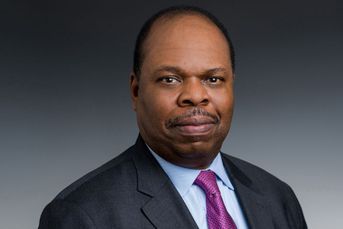Executives from tainted B-Ds find the past isn’t a problem
Last month, the Financial Industry Regulatory Authority Inc. shut down APS Financial Corp. for overcharging clients $1.3 million for bond trades in 2005 and 2006.
Last month, the Financial Industry Regulatory Authority Inc. shut down APS Financial Corp. for overcharging clients $1.3 million for bond trades in 2005 and 2006.
Despite the harsh regulatory action, APS’ co-chief executive and co-president, Jeffrey Sandberg, along with two other key executives, had no problem finding jobs, quickly moving their securities licenses to Woodstock Financial Group Inc.
Continuing a long-standing but little-discussed practice in the securities business, executives with small broker-dealers that have been closed down by regulators find work at other securities firms easily.
“It’s always been a problem,” said Scott Silver, a securities plaintiff’s attorney. “These guys close their doors and pitch their tent across the street.”
In many cases, executives from shuttered broker-dealers are landing at firms with the same type of problems that brought down their old companies.
NEW FIRM FINED
For example, Woodstock Financial, the firm to which Mr. Sandberg moved, was fined $15,000 in March by Connecticut securities officials for charging “certain Connecticut customers inflated transaction charges,” according to the firm’s record on Finra’s BrokerCheck system.
Mr. Sandberg, whose Finra re-cord indicates no personal history of problems with regulators, couldn’t be reached for comment.
“Woodstock Financial Group recently licensed several individuals from the brokerage firm APS Financial Group,” the firm’s president and chief executive, William Raike, wrote in an e-mail.
“In every case, we performed all the required due diligence. With respect to the individuals we licensed, there was no evidence or allegation of any impropriety regarding commissions charged,” Mr. Raike wrote.
Regarding the proceeding with Connecticut securities authorities, he wrote: “There never was any issue with the amount of the commissions or other charges, only with the manner in which these were disclosed to the customers. We elected to settle the proceeding without admitting any wrongdoing.”
In another example, Donahue Jones and Ralph Schneider, two top executives of Okoboji Financial Services Inc., which was shut down by regulators for failing to pay fines, this spring moved to Capital Financial Services Inc.
Both firms were involved in selling oil and gas private placements from Provident Royalties LLC that amounted to a $485 million Ponzi scheme, according to the Securities and Exchange Commission.
Representatives and advisers at Okoboji sold $21.9 million of the Provident notes, while Capital Financial sold notes worth $33.7 million, according to court records. Finra and state -regulators have questioned -broker-dealers about the private placements, and plaintiffs’ attorneys are suing firms over the sales of the notes.
John Carlson, Capital Financial’s president, didn’t return calls seeking comment. Mr. Jones declined to comment, and Mr. Schneider wasn’t available to comment.
Not even well-publicized scandals diminish the ability of some executives to land on their feet.
Bernerd Young, a former NASD — now Finra — district director in Dallas, began working at the Stanford Group Co. as the head of compliance in 2006, three years before the SEC charged the firm and its founder, R. Allen Stanford, with running an $8 billion investment fraud in the form of a Ponzi scheme.
In July 2009, months after the collapse of the Stanford Group, Mr. Young began a stint as chief compliance officer at Moody Securities LLC. This June, the SEC slapped him with a Wells notice, which means that SEC investigators intend to recommend filing charges against him for his role in the alleged fraud. Mr. Young intends to file a response, according to his Finra records.
Although the Stanford Group collapsed and he is being investigated by the SEC, Mr. Young remains entrenched in the securities business. Besides his work at Moody Securities, he is scheduled to appear in November at the annual meeting of the National Society of Compliance Professionals.
Mr. Young, along with an official from the Office of the New York State Comptroller, will speak on a panel titled “Fraud and Misappropriation, Detecting and Preventing.”
Mr. Young isn’t the only Stanford alumnus to work at Moody Securities.
Its president, Melinda Legaye, worked there from 1995 to 1998, according to her employment record with Finra. That was well before Mr. Young’s tenure at Stanford but during the period in which the alleged Ponzi scheme was carried out.
Moody’s Securities has no record of regulatory problems. Brett Moody, the firm’s owner, didn’t return calls seeking comment, and Mr. Young and Ms. Legaye couldn’t be reached.
Executives, attorneys and regulators pointed out that executives at broker-dealers that have been kicked out of the industry aren’t always at fault or to blame. Good executives can work at lousy broker-dealers, they said.
But closing down a bad firm is sometimes a lot easier than stripping its executives of their securities licenses, attorneys and executives said. Individual executives will fight to maintain their status in the -business.
“Finra has focused on rogue brokers, not rogue supervisors,” said Carrie Wisniewski, president of B/D Compliance Associates Inc., which provides consulting services to broker-dealers and investment advisers.
Not all executives who work at a scandal-tainted firm walk away with their standing in the business intact.
In the case of APS Financial, the other co-president, George Conwill, was barred from the industry last month by Finra for failing to supervise the $1.3 million in marked-up transactions. He didn’t contest the decision, according to Finra documents.
Some industry observers said that the ability of executives from troubled firms to move easily within the industry is reminiscent of the 1980s, when a certain cadre of small broker-dealers foisted worthless penny stocks on clients, with executives running from firm to firm.
“We’ve seen this for 20 years,” Mr. Silver said. “These small firms reopen under a different name with the same people and continue to do the same business.”
E-mail Bruce Kelly at [email protected].
Learn more about reprints and licensing for this article.








